Home>Garden Essentials>Garden Plants>What Is Spanish Thyme Good For
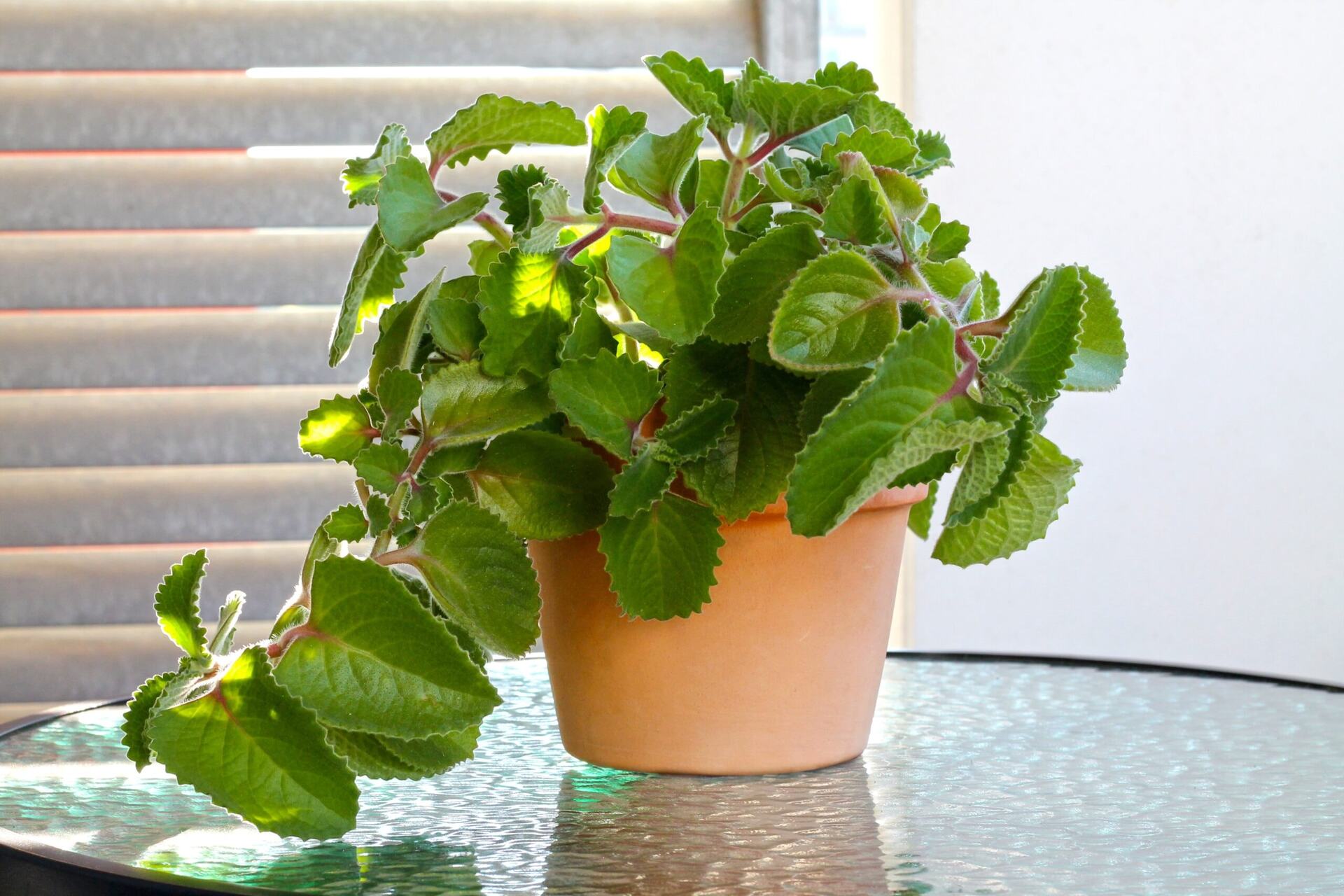

Garden Plants
What Is Spanish Thyme Good For
Modified: August 27, 2024
Discover the many benefits and uses of Spanish thyme for plants and gardening. Learn how this versatile herb can enhance your garden and promote healthy plant growth.
(Many of the links in this article redirect to a specific reviewed product. Your purchase of these products through affiliate links helps to generate commission for Storables.com, at no extra cost. Learn more)
Introduction
Welcome to the fascinating world of Spanish Thyme! Also known as Mediterranean Thyme or Wild Thyme, this aromatic and versatile herb has been cherished for centuries for its culinary and medicinal properties. In this article, we will explore the history, culinary uses, and medicinal benefits of Spanish Thyme, providing you with a comprehensive understanding of this remarkable plant.
Spanish Thyme (Thymus mastichina) is a perennial shrub native to the Mediterranean region, particularly Spain and Portugal. It belongs to the Lamiaceae family, which includes other popular herbs like mint, basil, and rosemary. The plant features small, oval-shaped leaves that are grayish-green and have a fuzzy texture. A member of the thyme genus, Spanish Thyme has a distinct, strong aroma and a slightly minty flavor.
The history of Spanish Thyme dates back centuries, with its use originating from the ancient Greeks and Romans. In traditional medicine, it was highly regarded for its antimicrobial and antispasmodic properties. This herb was also used to treat respiratory ailments, digestive issues, and skin conditions.
Today, Spanish Thyme has gained popularity in both culinary and medicinal realms. Its unique flavor profile makes it a favorite in Mediterranean cuisine, adding a delightful aroma and taste to dishes such as stews, soups, marinades, and sauces. It pairs well with vegetables, poultry, seafood, and even in herb-infused oils and vinegar.
Aside from its culinary uses, Spanish Thyme is also prized for its various health benefits. It contains a range of bioactive compounds, including thymol, carvacrol, and rosmarinic acid, which contribute to its medicinal properties. These compounds have antimicrobial, anti-inflammatory, and antioxidant effects, making Spanish Thyme a valuable herb for promoting overall wellness.
In the following sections, we will delve deeper into the culinary uses and medicinal properties of Spanish Thyme, exploring its potential benefits for respiratory health, digestive health, and antioxidant protection. We will also discuss other possible uses of Spanish Thyme and highlight any precautions or side effects to be aware of.
So join us on this informative journey as we uncover the secrets of Spanish Thyme and unlock the many ways it can enhance your culinary creations and support your well-being!
Key Takeaways:
- Spanish Thyme, also known as Mediterranean Thyme, is a versatile herb with a rich history and a wide range of culinary and medicinal uses. From enhancing the flavor of dishes to promoting respiratory and digestive health, this herb offers a world of possibilities for both cooking and wellness.
- With its potent antimicrobial, anti-inflammatory, and antioxidant properties, Spanish Thyme is a valuable addition to natural medicine cabinets. From soothing respiratory discomfort to aiding digestion and promoting overall well-being, this herb’s benefits extend far beyond the kitchen.
Read more: What Is Thyme Herb Good For
History of Spanish Thyme
The history of Spanish Thyme stretches back to ancient times, where its uses and benefits were recognized by various civilizations. This aromatic herb was highly esteemed by the Greeks, Romans, and Egyptians for its culinary and medicinal properties.
Spanish Thyme, scientifically known as Thymus mastichina, is native to the Mediterranean region, particularly Spain and Portugal. It thrives in dry and rocky terrain, characterized by the sunny and warm climate of the region. The name “mastichina” refers to the resinous nature of the herb, which is a distinguishing feature.
Throughout history, Spanish Thyme was commonly used in traditional medicine due to its potent antimicrobial and antispasmodic properties. The ancient Greeks recognized its medicinal value and included it in their pharmacopeia. They used Spanish Thyme to treat respiratory issues, digestive problems, and even as a cicatrizant for wounds and burns.
Similarly, the ancient Romans held Spanish Thyme in high regard for its medicinal benefits. It was used as an antiseptic and anti-inflammatory agent, often incorporated into herbal remedies for coughs, colds, and gastrointestinal discomfort. Additionally, Roman soldiers would infuse Spanish Thyme in their baths to promote muscular relaxation and relieve fatigue.
Spanish Thyme also found its place in ancient Egyptian culture. It was used in embalming practices due to its aromatic properties and ability to mask unpleasant odors. The herb was included in the process of mummification to preserve the body and prevent the growth of bacteria.
Over the centuries, Spanish Thyme continued to be valued for its medicinal qualities. It was widely used as a natural remedy for various respiratory ailments, including bronchitis, asthma, and congestion. The herb’s expectorant and soothing properties made it a popular choice for relieving coughs and clearing respiratory passages.
In recent years, Spanish Thyme’s historical significance and potential health benefits have sparked renewed interest in research and scientific studies. These investigations aim to uncover the herb’s chemical composition and biological effects, shedding light on its therapeutic potential.
Today, Spanish Thyme is not only cherished for its rich history but also for its versatile culinary applications. Its distinctive flavor and aroma make it a valued ingredient in Mediterranean cuisine, bringing a delightful taste to various dishes.
As we explore the culinary uses and medicinal properties of Spanish Thyme in the following sections, we will uncover the remarkable legacy of this herb and its ability to enhance both our health and culinary experiences.
Culinary Uses
Spanish Thyme is a herb that adds a delightful flavor and aroma to a wide range of culinary creations. Its unique taste is often described as a combination of thyme, mint, and lavender, with a subtle hint of citrus. This makes it a versatile ingredient that can elevate both savory and sweet dishes.
One of the most common culinary uses of Spanish Thyme is in Mediterranean cuisine. It is a staple herb in dishes from Spain and Portugal, where it is known as “Tomillo-limonero” or “Alho-frances.” The herb is often used in traditional recipes to infuse dishes with its distinctive botanical essence.
When it comes to savory dishes, Spanish Thyme pairs well with a variety of ingredients. Its earthy and slightly minty flavor enhances the taste of roasted meats, poultry, and game, adding a fragrant and aromatic touch. It can be sprinkled over grilled vegetables, such as zucchini or eggplant, to provide a Mediterranean twist.
Spanish Thyme also lends itself well to soups, stews, and sauces. Whether added during cooking or used as a garnish, it imparts a vibrant flavor that complements the richness of the ingredients. It can be added to tomato-based sauces, bean soups, or even marinades for seafood, giving them a fresh and herbaceous taste.
Aside from savory dishes, Spanish Thyme can also be used in sweet recipes, adding an unexpected burst of flavor. Its fragrant notes blend well with creamy desserts, such as custards, puddings, and ice creams. It can also be infused into syrups or steeped in teas to create refreshing beverages.
To incorporate Spanish Thyme into your culinary creations, you can use the leaves either fresh or dried. Fresh Spanish Thyme leaves work best when added towards the end of the cooking process to preserve their delicate flavors. Dried Spanish Thyme leaves are more concentrated and can be used at the beginning of cooking for a stronger taste.
The versatility of Spanish Thyme extends beyond traditional cooking methods. It can be infused in oils or vinegars to create flavorful dressings or marinades. Simply adding a few sprigs of Spanish Thyme to a bottle of olive oil or vinegar will infuse it with the herb’s aroma and taste.
In addition to its role in the kitchen, Spanish Thyme is also a popular choice for garnishing dishes. The clusters of small, pale pink flowers that bloom on the herb add an aesthetically pleasing touch to plates, elevating their visual appeal.
Next time you’re looking to enhance the flavors of your culinary creations, consider adding Spanish Thyme. Its complex and aromatic profile will add a unique touch to your dishes, capturing the essence of Mediterranean cuisine.
Medicinal Properties
Beyond its culinary uses, Spanish Thyme possesses a range of medicinal properties that have been recognized and cherished for centuries. This herb is rich in beneficial compounds that contribute to its healing potential, making it a valuable addition to a natural medicine cabinet.
One of the key components found in Spanish Thyme is thymol, which is known for its antimicrobial properties. Thymol has been shown to exhibit strong antimicrobial activity against various bacteria and fungi, making Spanish Thyme an effective natural remedy for combating infections. Its ability to inhibit the growth of harmful microorganisms makes it useful for oral health, respiratory conditions, and even topical applications for skin infections.
Furthermore, Spanish Thyme contains carvacrol, another compound with potent antimicrobial activity. Carvacrol has been found to have an inhibitory effect on the growth of harmful bacteria, including those resistant to antibiotics. This makes Spanish Thyme an important herb in the fight against antibiotic-resistant strains of bacteria.
The presence of rosmarinic acid in Spanish Thyme contributes to its anti-inflammatory properties. Rosmarinic acid has been shown to reduce inflammation and oxidative stress in the body, making it beneficial for conditions such as arthritis and allergies. Its antioxidant properties help to neutralize harmful free radicals and reduce the risk of damage to cells and tissues.
Spanish Thyme is also known for its impact on respiratory health. The herb has expectorant properties, which help to loosen phlegm and mucus, making it easier to clear and alleviate congestion. This makes Spanish Thyme a valuable natural remedy for conditions such as coughs, colds, bronchitis, and sinusitis.
Another area where Spanish Thyme shows promise is in promoting digestive health. The herb has been traditionally used to improve digestion and alleviate digestive discomfort. It can help to relax the smooth muscles of the digestive tract, easing symptoms of indigestion, bloating, and stomach cramps. Additionally, Spanish Thyme has been shown to have antimicrobial effects on certain harmful bacteria in the gut, supporting a healthy balance of gut flora.
The antioxidant properties of Spanish Thyme are worth mentioning, as they play a crucial role in protecting the body against oxidative stress and damage. Oxidative stress is associated with various chronic diseases and aging. The antioxidants in Spanish Thyme help to neutralize free radicals and reduce inflammation, contributing to overall well-being and longevity.
Aside from its medicinal uses, Spanish Thyme has a soothing and calming effect, making it a popular ingredient in aromatherapy. The herb’s aromatic properties can be inhaled or diffused to promote relaxation, relieve stress, and improve sleep quality.
It is important to note that while Spanish Thyme has numerous potential health benefits, it is always advisable to consult with a healthcare professional before using it as a remedy, especially if you have any underlying health conditions or are taking medications.
In the next sections, we will take a closer look at the specific health benefits of Spanish Thyme, focusing on its effects on respiratory health, digestive health, and antioxidant protection.
Respiratory Health
Spanish Thyme has long been revered for its beneficial effects on respiratory health. The herb possesses properties that can help alleviate symptoms associated with respiratory conditions, such as coughs, colds, bronchitis, and sinusitis.
One of the key benefits of Spanish Thyme for respiratory health is its expectorant properties. It can help to loosen and expel phlegm and mucus from the respiratory tract, making it easier to cough up and clear congestion. This action helps to relieve chest congestion and improve breathing.
The expectorant action of Spanish Thyme is attributed to its bioactive compounds, especially thymol and carvacrol. These compounds have been shown to have bronchodilatory effects, meaning they can relax and widen the airways, facilitating easier breathing.
In addition to its expectorant properties, Spanish Thyme possesses antimicrobial activity that can help to combat respiratory infections. The herb’s potent antimicrobial compounds, including thymol, can inhibit the growth of bacteria and fungi that may cause respiratory infections.
Research suggests that Spanish Thyme extracts may help to inhibit the growth of respiratory pathogens, including those responsible for common respiratory tract infections. This antimicrobial property makes Spanish Thyme a valuable natural remedy for respiratory conditions caused by bacterial or fungal infections.
Furthermore, Spanish Thyme has anti-inflammatory properties that can reduce inflammation in the respiratory system. Inflammation can contribute to airway constriction and worsen symptoms of respiratory conditions such as asthma. The anti-inflammatory effects of Spanish Thyme may help to alleviate inflammation in the airways, promoting better respiratory health.
Spanish Thyme can be consumed in various forms to support respiratory health. It can be brewed into a tea by steeping a few fresh or dried leaves in hot water for a few minutes. The warm, aromatic tea can help soothe the throat, reduce coughing, and promote expectoration.
Inhaling the steam from a cup of hot water infused with Spanish Thyme leaves or adding a few drops of Spanish Thyme essential oil to a diffuser can also help to clear nasal congestion and provide relief from respiratory discomfort.
Despite its potential benefits, it’s important to note that Spanish Thyme should not be used as a substitute for medical treatment. If you have a chronic respiratory condition or severe symptoms, it’s essential to consult with a healthcare professional for proper diagnosis and treatment.
In the next section, we will explore how Spanish Thyme can support digestive health and alleviate common digestive issues.
Spanish thyme, also known as Mexican mint, is good for adding a unique flavor to dishes. It can be used in marinades, soups, and stews to add a fresh, citrusy taste. It also has potential health benefits, including being high in antioxidants and having antibacterial properties.
Read more: What Is Thyme Tea Good For?
Digestive Health
Spanish Thyme has long been recognized for its positive effects on digestive health. The herb possesses properties that can help alleviate common digestive issues and promote overall digestive well-being.
One of the key benefits of Spanish Thyme for digestive health is its ability to improve digestion and alleviate symptoms of indigestion. The herb has been traditionally used as a natural remedy to aid in the breakdown of food and promote the proper functioning of the digestive system.
Spanish Thyme contains compounds that can help relax the smooth muscles of the digestive tract, including the stomach and intestines. This relaxing effect may help to ease symptoms of indigestion, such as bloating, stomach cramps, and discomfort.
In addition to its muscle-relaxing properties, Spanish Thyme exhibits antimicrobial activity against certain harmful bacteria in the gut. It can help maintain a healthy balance of gut flora by inhibiting the growth of pathogenic bacteria. A healthy gut flora is essential for proper digestion and nutrient absorption.
The antimicrobial properties of Spanish Thyme are attributed to its bioactive components, particularly thymol and carvacrol. These compounds have been found to have broad-spectrum antimicrobial effects, making Spanish Thyme a valuable natural remedy for digestive issues caused by bacterial overgrowth.
Furthermore, Spanish Thyme may also have anti-inflammatory effects on the digestive system. Inflammation in the gut can contribute to digestive disorders such as gastritis, inflammatory bowel disease, and irritable bowel syndrome. The anti-inflammatory properties of Spanish Thyme may help reduce inflammation and alleviate symptoms associated with these conditions.
Spanish Thyme can be incorporated into your diet to reap its digestive benefits. Fresh or dried Spanish Thyme leaves can be added to dishes like stews, soups, and sauces to enhance flavor and aid digestion. Infusing Spanish Thyme in olive oil can create an aromatic and digestive-friendly oil for dressings or marinades.
Additionally, drinking Spanish Thyme tea can provide relief for digestive discomfort. To make Spanish Thyme tea, steep a few fresh or dried leaves in hot water for several minutes, and enjoy the warm and soothing brew.
While Spanish Thyme may be a beneficial natural remedy for digestive health, it’s important to remember that individual responses may vary. If you have persistent or severe digestive issues, it’s advisable to consult a healthcare professional for proper evaluation and guidance.
In the next section, we will explore the antioxidant benefits of Spanish Thyme and its potential impact on overall well-being.
Antioxidant Benefits
Spanish Thyme possesses impressive antioxidant properties, making it a valuable herb for promoting overall well-being. Antioxidants are compounds that help protect the body against oxidative stress, a process that can damage cells and contribute to various chronic diseases.
One of the primary antioxidant compounds found in Spanish Thyme is rosmarinic acid. This compound has been shown to have potent antioxidant activity, helping to neutralize free radicals and reduce oxidative damage in the body.
Free radicals are unstable molecules that can react with and damage cells, leading to oxidative stress. This oxidative stress has been implicated in the development and progression of various chronic conditions, such as cardiovascular diseases, cancer, and neurodegenerative disorders.
By scavenging and neutralizing free radicals, Spanish Thyme’s antioxidants can help protect cells and tissues from damage caused by oxidative stress. This can contribute to healthier cells, improved overall well-being, and a reduced risk of chronic diseases.
Furthermore, the antioxidant properties of Spanish Thyme can also help support a healthy immune system. Oxidative stress can weaken the immune system, making it less effective in defending the body against infections and diseases. By reducing oxidative stress, Spanish Thyme’s antioxidants can help support immune function and strengthen the body’s natural defense mechanisms.
Research has shown that Spanish Thyme extracts have high antioxidant capacity, comparable to other potent antioxidant-rich herbs and spices. Incorporating Spanish Thyme into your diet can provide an additional source of antioxidants to support your body’s defense against oxidative damage.
One way to incorporate Spanish Thyme’s antioxidant benefits into your daily routine is by using it in cooking. Adding the herb to your culinary creations, such as soups, stews, and marinades, allows you to benefit from its antioxidant properties while enhancing the flavor of your dishes.
Another approach is to brew Spanish Thyme tea by steeping a few fresh or dried leaves in hot water. Sipping on this herbal tea can provide you with a warm and antioxidant-rich beverage, perfect for relaxation and well-being.
While Spanish Thyme’s antioxidants offer potential health benefits, it’s important to maintain a balanced diet that includes a variety of antioxidant-rich foods. This ensures that you’re receiving a wide range of beneficial compounds to support your overall health and well-being.
Next, we will explore other potential uses for Spanish Thyme and discuss any precautions or side effects to be aware of.
Other Uses
In addition to its culinary applications and medicinal properties, Spanish Thyme has several other potential uses. The herb’s distinctive aroma and properties make it a versatile and beneficial ingredient for various purposes beyond the kitchen and medicine cabinet.
One of the notable uses of Spanish Thyme is in aromatherapy. The herb’s pleasant scent can help to create a calming and relaxing atmosphere. Diffusing Spanish Thyme essential oil or adding a few drops to a warm bath can promote stress relief, improve mood, and enhance overall well-being.
The aromatic properties of Spanish Thyme lend themselves well to craft projects and DIY household items. Dried Spanish Thyme can be used in potpourri or sachets to create natural air fresheners for your home. Its fragrance can also be infused into homemade candles or soaps, adding a delightful scent to your creations.
In gardening, Spanish Thyme can be planted in gardens or used as a decorative plant in containers. Its small, grayish-green leaves and delicate clusters of pink flowers provide visual interest and can enhance the overall aesthetic of a garden or patio.
Additionally, Spanish Thyme is often used as an ingredient in natural insect repellents. The strong, aromatic scent of the herb can help to deter insects such as mosquitoes and flies. It can be infused into oils or made into a spray to create a natural and chemical-free solution for keeping bugs at bay.
When it comes to skincare, Spanish Thyme has been used for its antimicrobial and astringent properties. The herb’s extracts can be found in natural skincare products such as cleansers, toners, and creams. These products may help soothe irritation, reduce acne breakouts, and promote overall skin health.
It’s worth noting that while Spanish Thyme has various potential uses, individual experiences and results may vary. It’s always important to do a patch test before using Spanish Thyme or any new product on your skin to ensure you don’t have any adverse reactions or allergies.
In the next section, we will discuss any precautions and potential side effects that should be considered when using Spanish Thyme.
Side Effects and Precautions
While Spanish Thyme is generally safe for consumption and topical use, it’s important to be aware of potential side effects and take necessary precautions.
Some individuals may have an allergic reaction to Spanish Thyme. If you have a known allergy to other herbs in the mint family, such as basil or oregano, it’s advisable to exercise caution when using Spanish Thyme. Perform a patch test before applying Spanish Thyme oil or using products containing the herb on your skin to check for any adverse reactions.
As with any herb or supplement, it’s important to use Spanish Thyme in moderation. While there is no established maximum dosage, excessive consumption or use of Spanish Thyme may lead to digestive discomfort or irritation. It’s always best to follow recommended guidelines and consult a healthcare professional if you have any concerns.
If you are pregnant or breastfeeding, it’s essential to exercise caution when using Spanish Thyme or any herbal remedy. Limited research is available on the safety of Spanish Thyme during pregnancy and breastfeeding, so it’s best to consult with a healthcare provider before using it in any form.
Spanish Thyme may interact with certain medications, especially those that are metabolized by the liver. If you are taking any medications or have any underlying health conditions, it’s advisable to consult with a healthcare professional before using Spanish Thyme to ensure there are no potential interactions.
When using Spanish Thyme essential oil, it’s important to properly dilute it before applying it to the skin. Undiluted essential oils can cause skin irritation or sensitization. Follow recommended guidelines for dilution ratios and perform a patch test before applying to a larger area of the skin.
It’s worth noting that the information provided here is for informational purposes only and is not intended to replace professional medical advice. If you have any specific health concerns or questions regarding the use of Spanish Thyme, it’s always best to consult with a qualified healthcare professional.
Now that we’ve covered the precautions and potential side effects, let’s summarize the benefits and uses of Spanish Thyme in the concluding section.
Read more: What Is Thyme Used For
Conclusion
Spanish Thyme, with its rich history, aromatic profile, and medicinal properties, is a remarkable herb that offers numerous benefits for both culinary and wellness pursuits. Known for its culinary uses, Spanish Thyme adds a delightful flavor and aroma to a wide range of dishes, making it a staple ingredient in Mediterranean cuisine.
However, Spanish Thyme goes beyond its culinary appeal. The herb boasts various medicinal properties, including antimicrobial, anti-inflammatory, and antioxidant effects. Its expectorant properties make it a valuable ally for respiratory health, helping to alleviate congestion and promote easier breathing.
Spanish Thyme also supports digestive health, aiding in digestion, relieving indigestion, and promoting a healthy balance of gut flora. Its antioxidant properties protect against oxidative stress, contributing to overall well-being and reducing the risk of chronic diseases.
Additionally, Spanish Thyme offers other potential uses, such as in aromatherapy, skincare, gardening, and natural insect repellents. While using Spanish Thyme, it’s important to be aware of potential side effects, such as allergies, and take necessary precautions. Consulting with a healthcare professional is always advisable, especially if you are pregnant, breastfeeding, or have any underlying health conditions or medication interactions.
Incorporating Spanish Thyme into your culinary creations, teas, or natural remedies can transform ordinary dishes into flavorful delights while providing potential health benefits. Whether you’re seeking to enhance your cooking, improve respiratory or digestive health, or simply enjoy the calming aroma of Spanish Thyme, this versatile herb offers a world of possibilities.
So why not explore the wonders of Spanish Thyme and let its unique characteristics and properties enhance your culinary experiences and support your well-being? Embrace this aromatic herb and unlock its secrets today!
Frequently Asked Questions about What Is Spanish Thyme Good For
Was this page helpful?
At Storables.com, we guarantee accurate and reliable information. Our content, validated by Expert Board Contributors, is crafted following stringent Editorial Policies. We're committed to providing you with well-researched, expert-backed insights for all your informational needs.
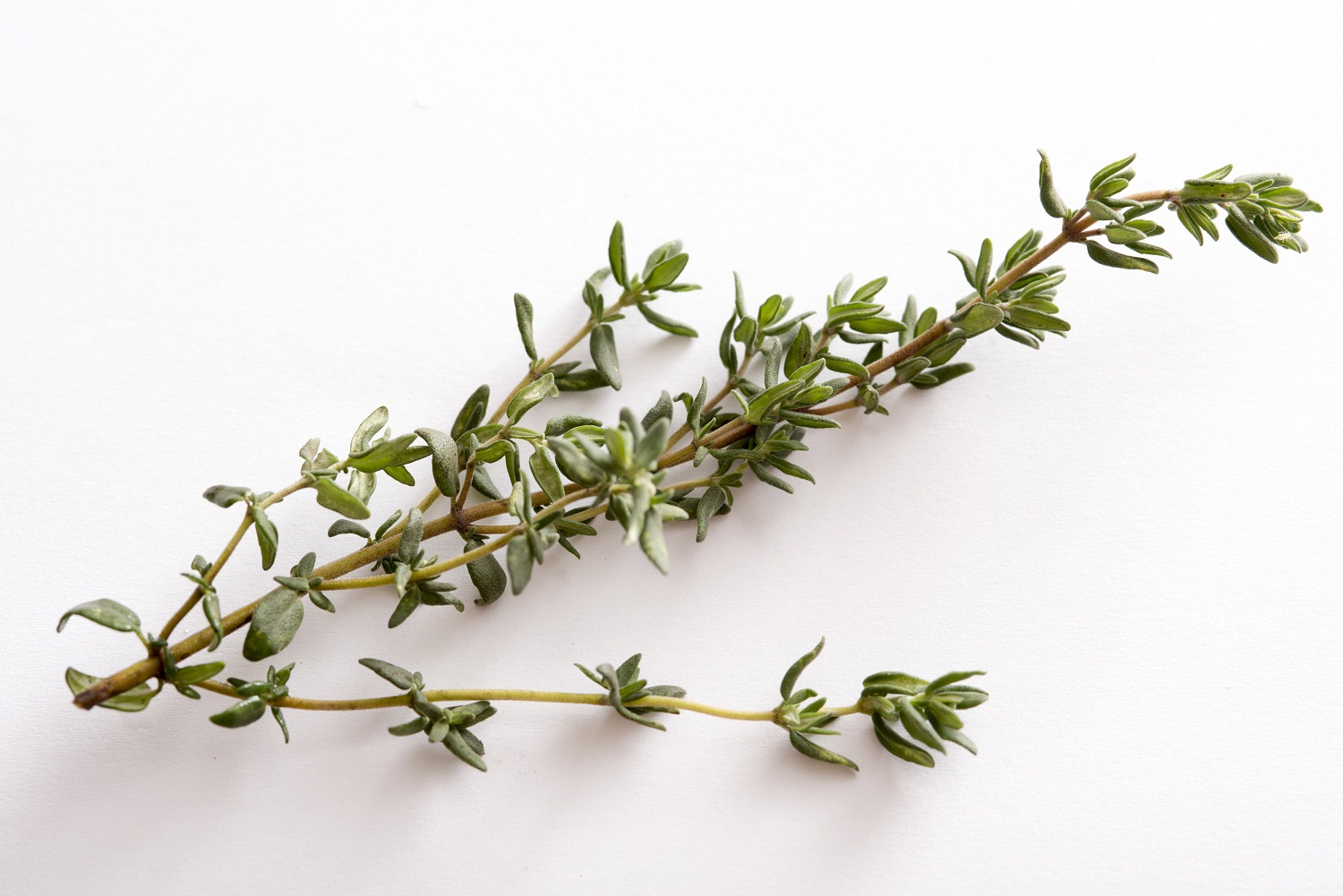
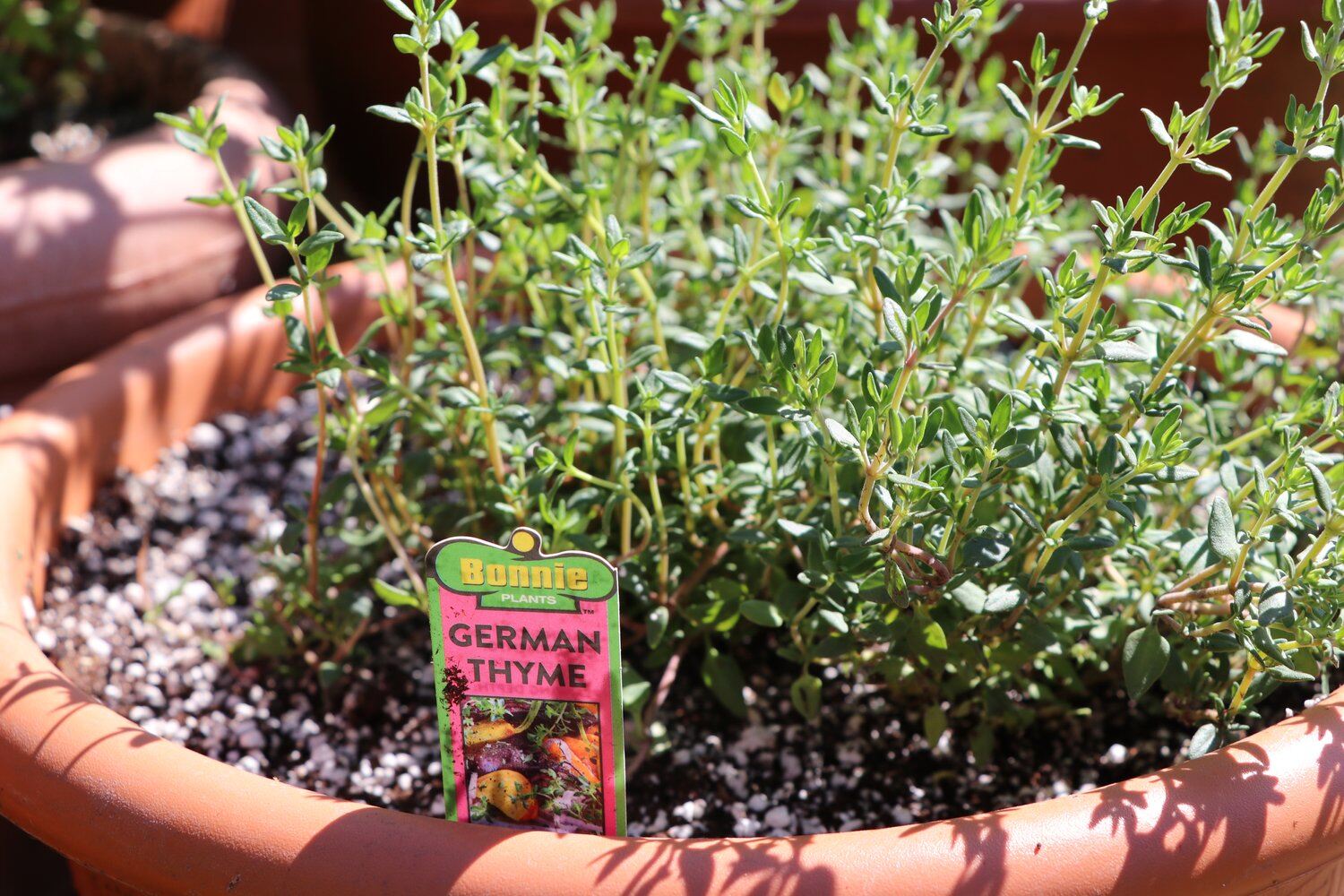
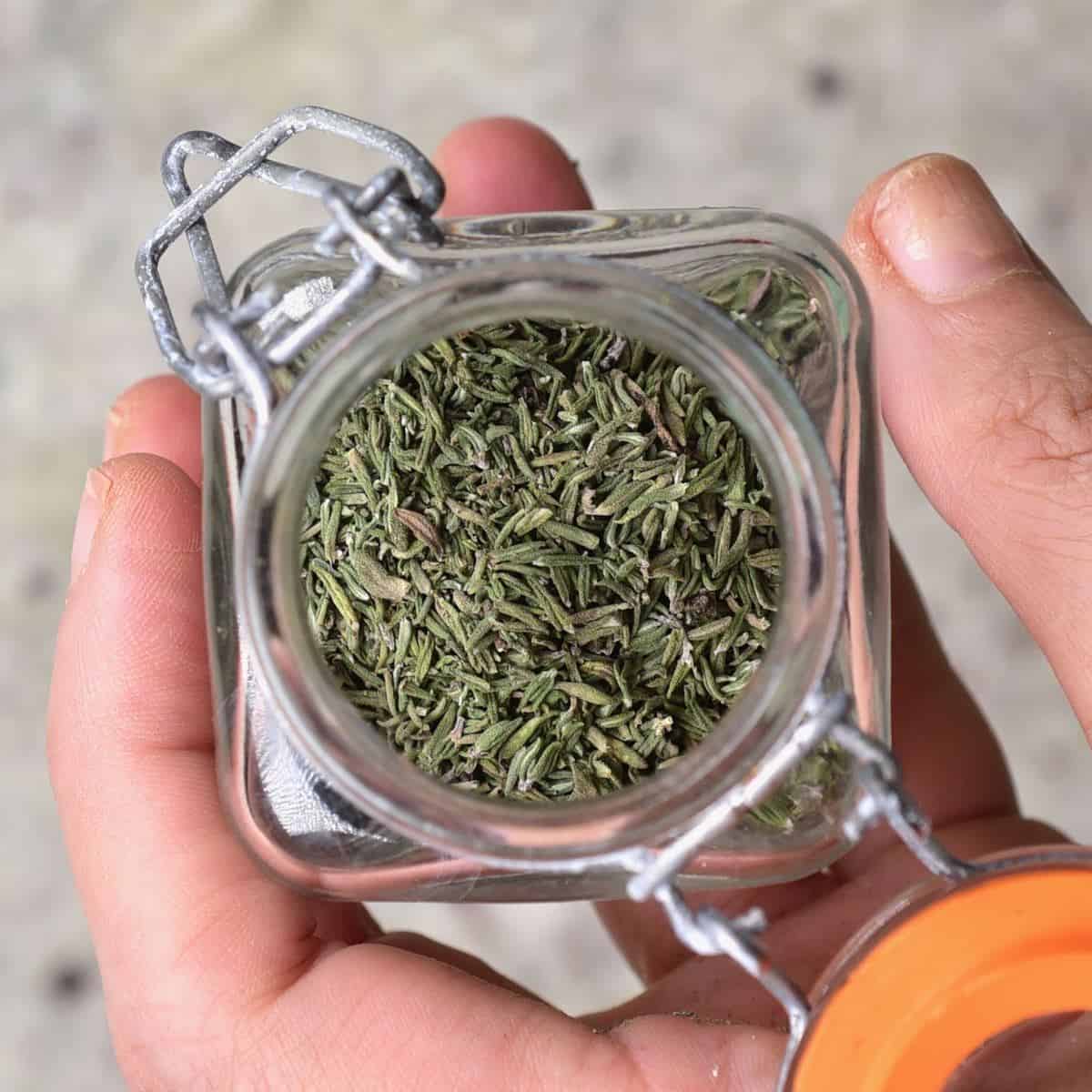
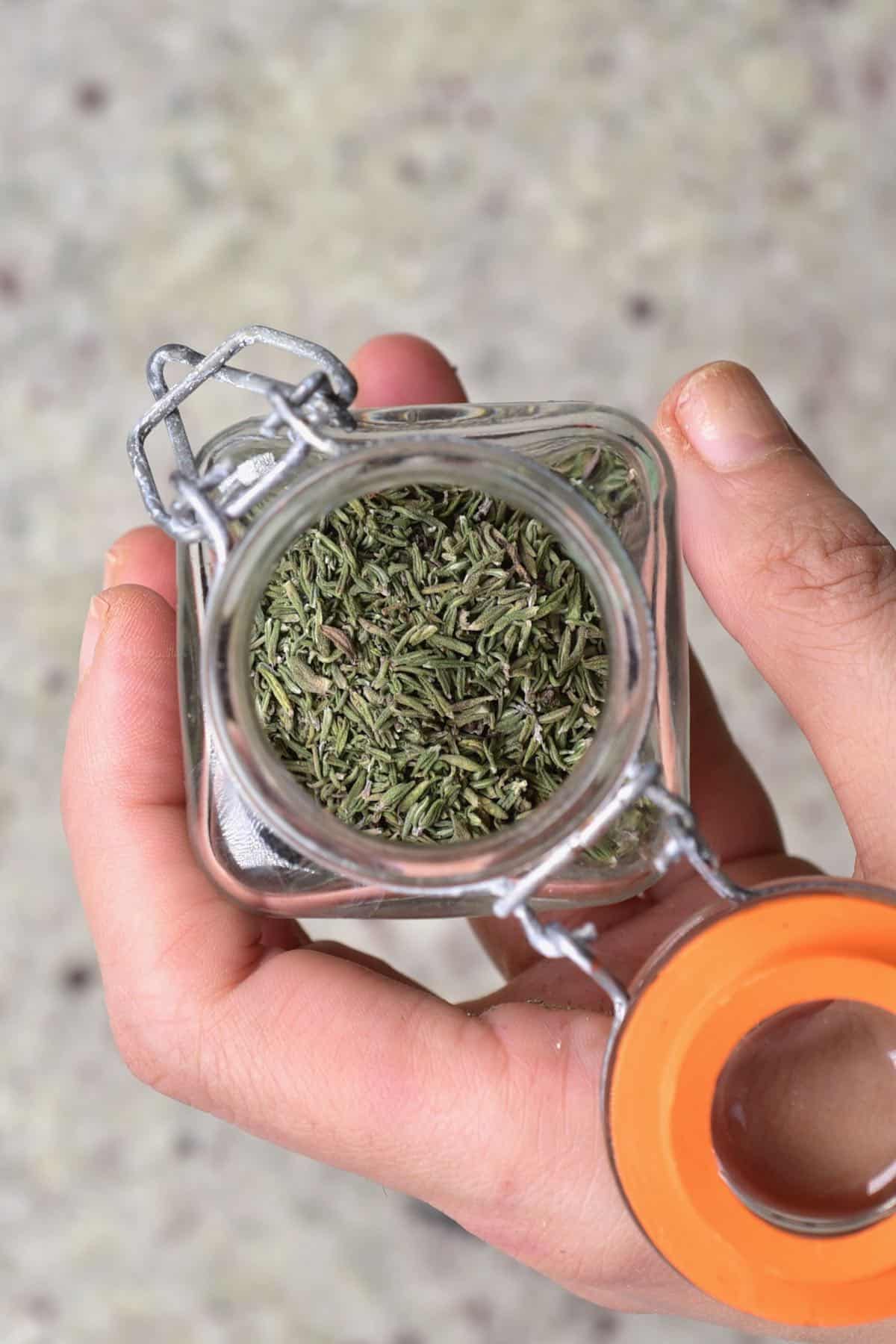
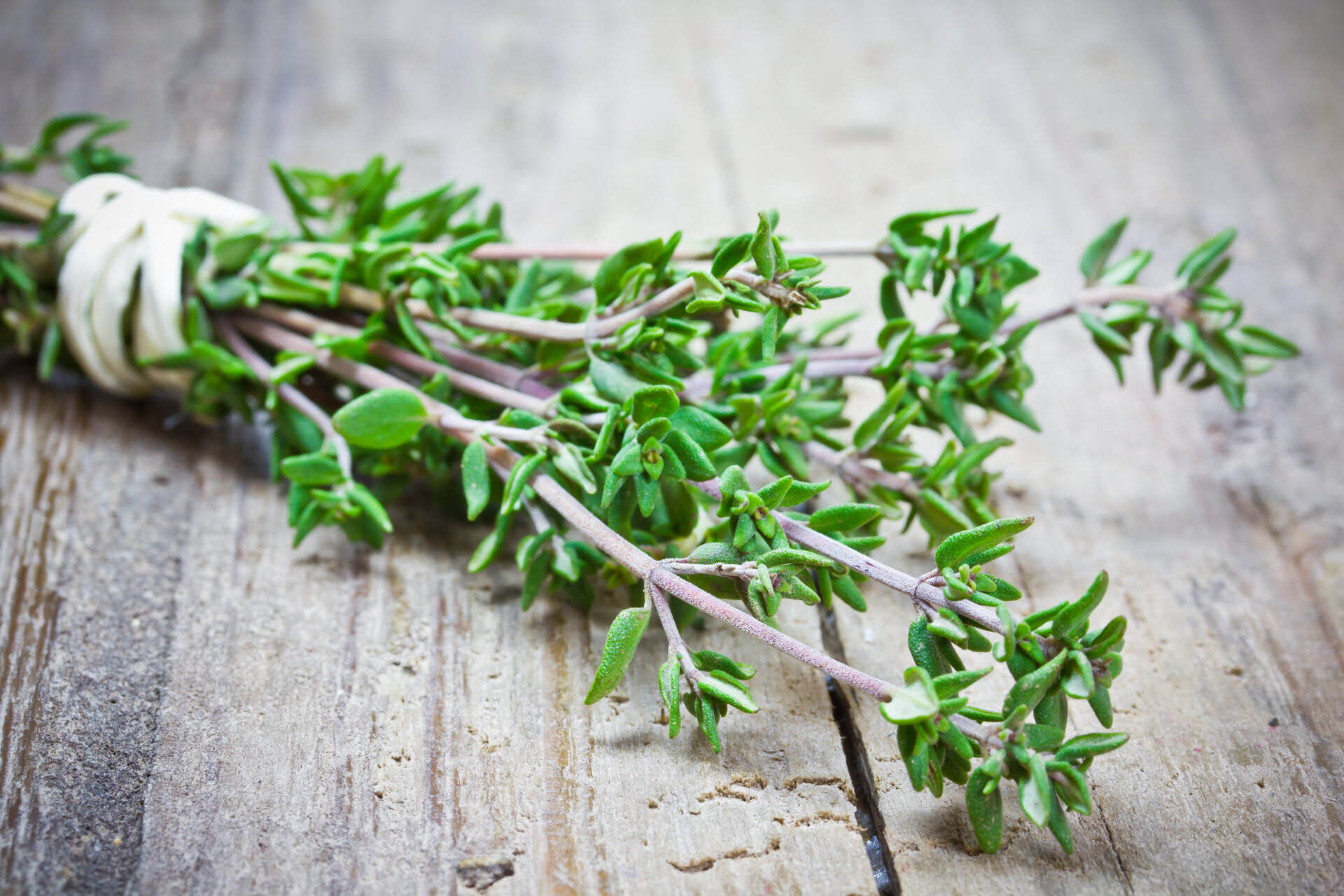



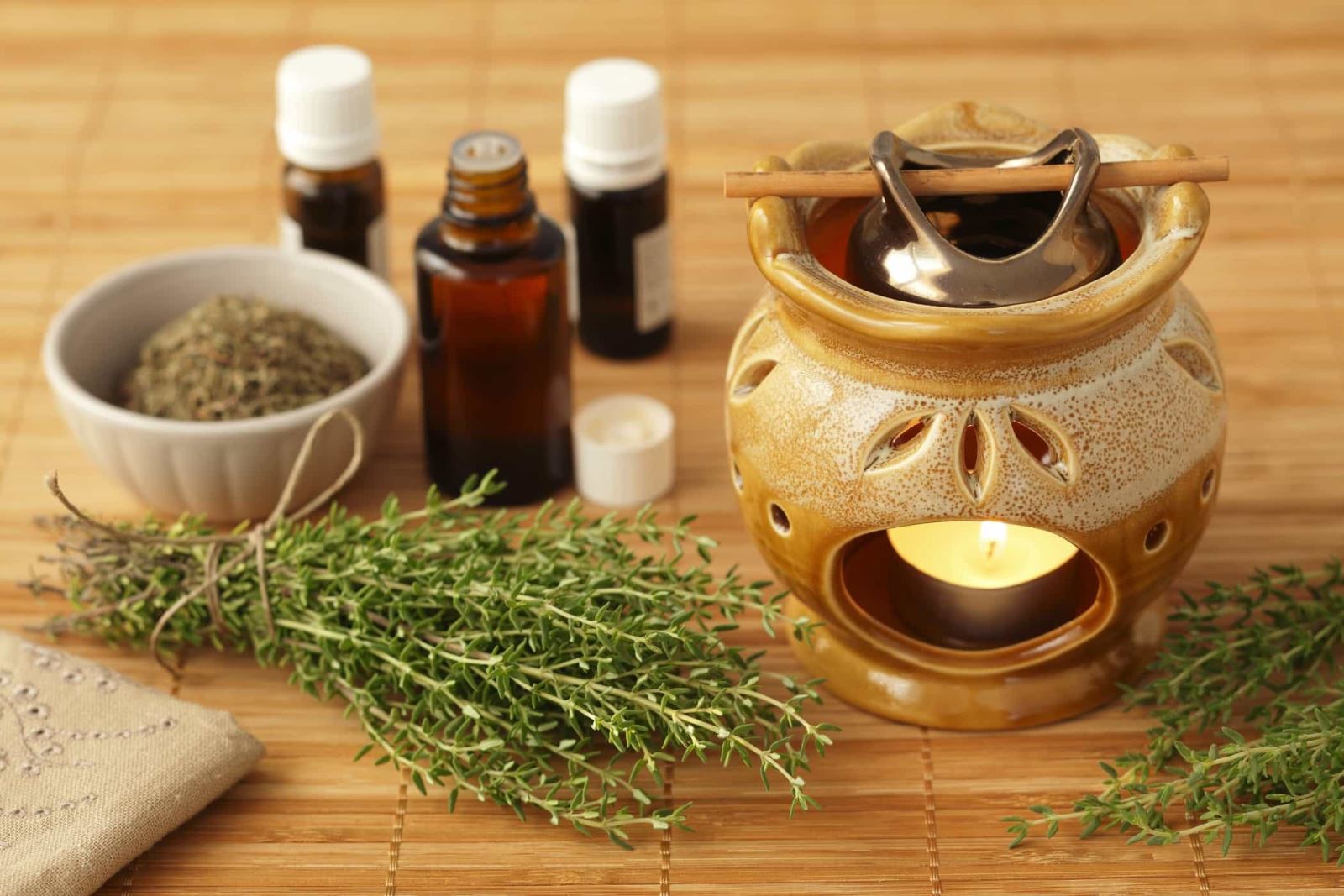
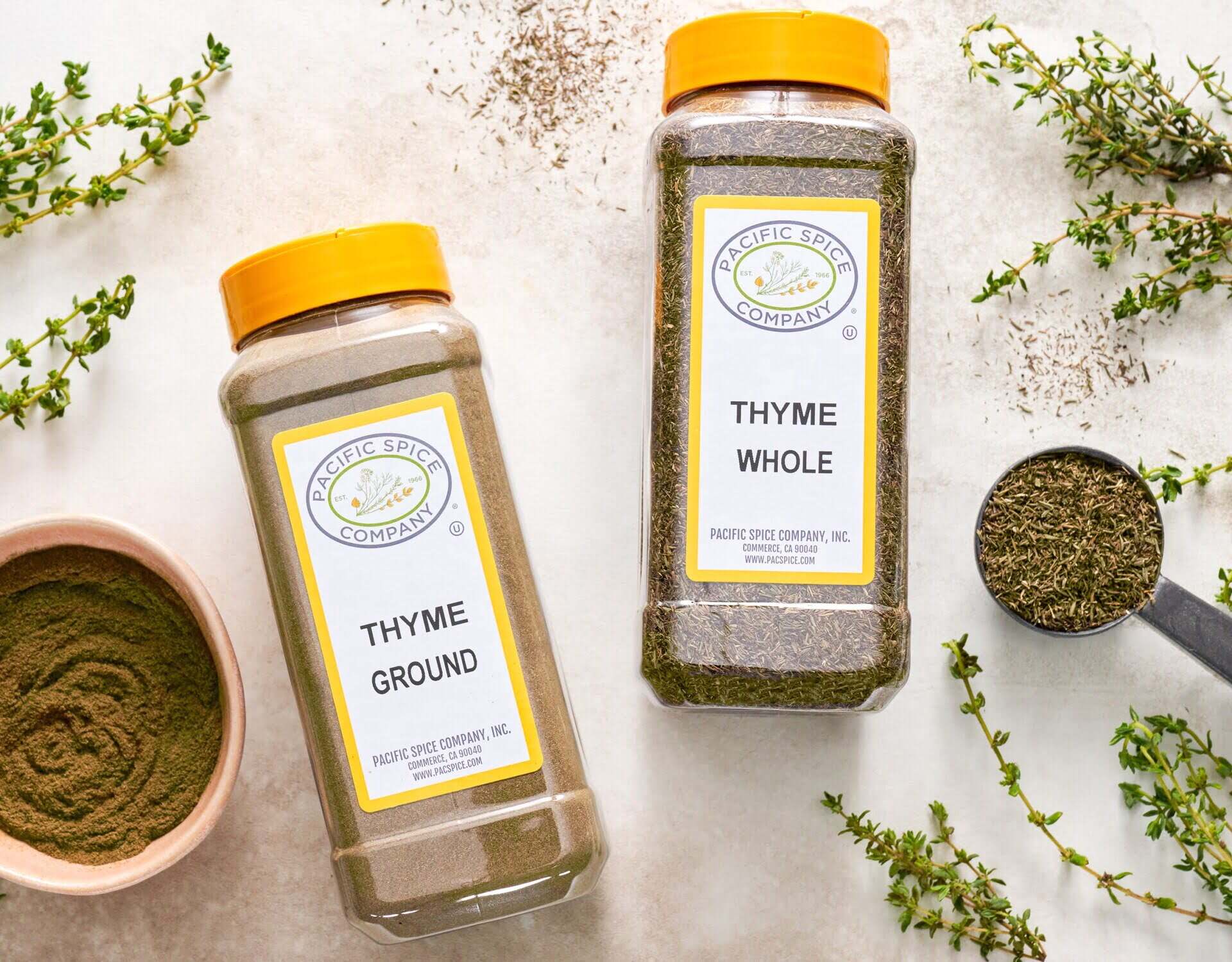




0 thoughts on “What Is Spanish Thyme Good For”